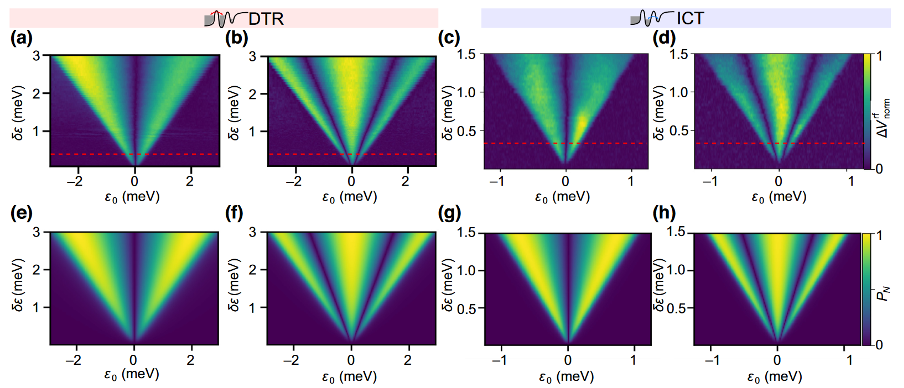Quantum-dots based microwave devices
 We use semiconductor quantum dots at microwave frequencies to demonstrate new and more efficient electronic devices and circuits such as amplifiers, multipliers and sensors.
We use semiconductor quantum dots at microwave frequencies to demonstrate new and more efficient electronic devices and circuits such as amplifiers, multipliers and sensors.
Quantum dots (QDs), nanosystems so tiny that their size determines their properties, have revolutionised fields as diverse as light emission, photovoltaics, and biomedicine, primarily by exploiting their optical properties. QDs have, as well, extraordinary electrical properties that have placed them at the forefront of quantum information processing technologies, as hosts of semiconductor spin qubits. To operate, spins qubits necessitate deep cryogenic temperatures (< 4 K), and high frequency signals, typically delivered from room temperature. To advance towards scalable integrated quantum computing systems, low-power cryogenic electronics solutions are needed but, with all modern approaches, high power dissipation levels has prevented tighter integration.
In our group we aim to answer to this challenge by using the same embodiment for spin-qubit, QDs themselves, to demonstrate revolutionary new devices for low-power microwave applications. We exploit the dissipationless high-frequency non-linear admittance of QDs, the quantum capacitance, to process microwave control and readout signals to solve the quantum-classical integration challenge and demonstrate that integrated quantum computing systems, exclusively based on semiconductor QDs, can be constructed. Furthermore, the dissipation-less nature of this complementary reactive element, its resilience against magnetic fields and the capability to manufacture it using silicon fabs could be utilized to create new amplifiers, frequency multipliers and mixers as well as fast cryogenic thermometers at low cost.
References:
Unified linear response theory of quantum dot circuits, arxiv
Parametric amplifiers based on quantum dots, Phys Rev Lett
Quantum dot-based frequency multiplier, PRX Quantum
Beyond-adiabatic quantum admittance of a semiconductor quantum dot at high frequencies, Quantum
